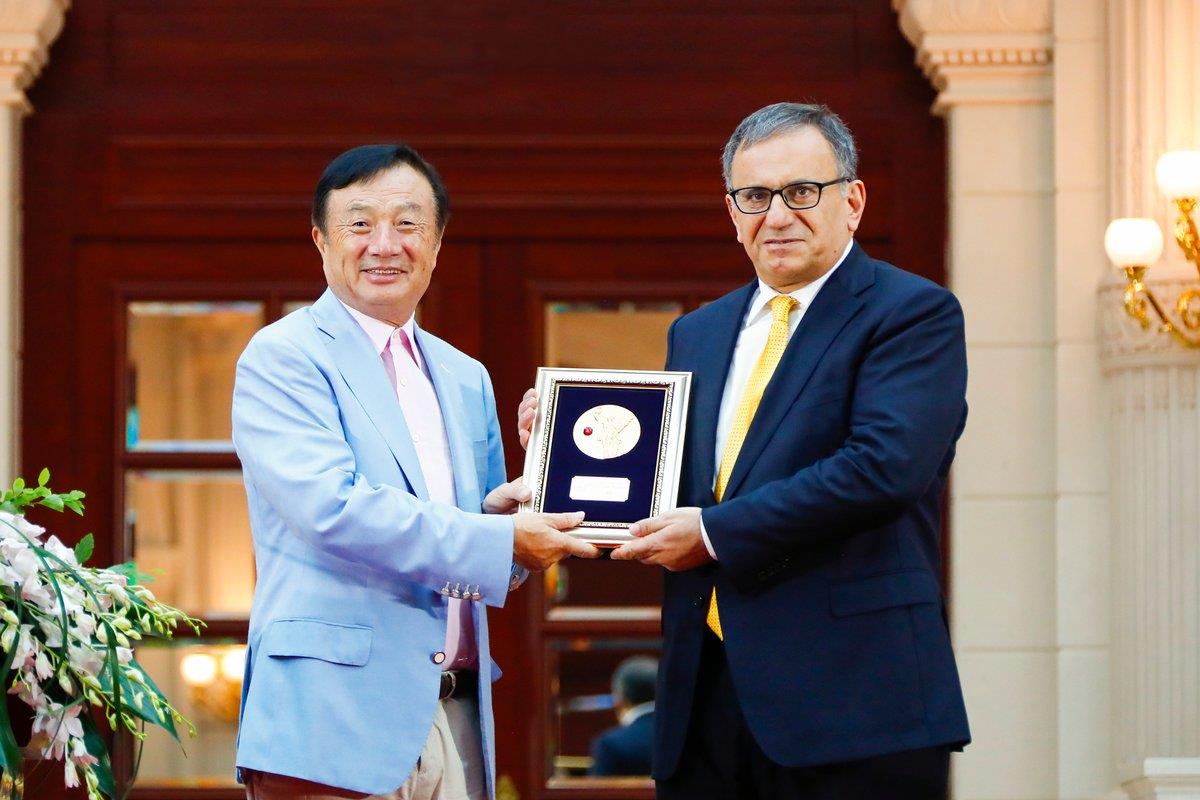Phnom Penh (FN), Aug. 17 - Huawei founder Mr. Ren Zhengfei has presented a special award to Turkish professor Dr. Erdal Arikan, the inventor of polar codes for 5G, in recognition of his outstanding contribution to the development of communications technology.
At the ceremony, held at Huawei's global headquarters in Shenzhen, the company also honored more than 100 Huawei scientists and engineers who are working on standards and basic research.
Opening the ceremony, Huawei Rotating Chairman Eric Xu also spoke at the event: "5G standards are the result of a worldwide effort to drive progress in basic research and wireless communications technology. For these standards to take shape, it took more than 10 years of hard work from tens of thousands of scientists and engineers, along with dozens of companies around the world. We would like to express our sincere gratitude to Professor Arikan, as well as his peers in academia, fellow scientists, and Huawei employees who have all contributed to 5G."
"The birth of 5G standards is only the beginning of a new journey," Xu added. "We will continue to work hard to ensure that 5G technology – including polar codes – creates greater value for society, and sooner. At the same time, we hope that the close
collaboration between companies and the academia, like the one between Huawei and Professor Arikan, will continue, and give rise to more scientific marvels that drive the development of the ICT industry and society as a whole."
After receiving the medal, Professor Arikan delivered an acceptance speech. "I am honored to be here today receiving this award," he said. "It gives me pleasure to acknowledge that, without the vision and technical contributions of Huawei directors and engineers, polar codes would not have made it from lab to a standard in less than 10 years. And as engineers, there is no greater reward than seeing our ideas turn into reality."
In 1948, the father of information theory, Claude Shannon, calculated a limit for the speed at which we can transmit data error-free. The faster you send data, the more chances for errors are introduced. For decades, the industry has been working on ways to get us closer to that limit through a process called channel coding. Polar codes are believed to be the first channel coding scheme to bring the industry up against the threshold of Shannon's limit, or the maximum rate that data can be sent with zero error at a particular bandwidth.
As a major contributor to 5G standards, and a core patent holder, Huawei is committed to following the FRAND principle for all patent licensing. That means Fair, Reasonable, and Non-discriminatory patent licensing – a principle that the company has adhered to in the past, and will continue to adhere to moving forward. Huawei aims to build a robust 5G ecosystem together with other players. Strong R&D investment has been a core focus at Huawei for years, investing nearly CNY400 billion in R&D over the past decade. Moving forward, Huawei will increase investment in basic research by earmarking 20% to 30% of its annual US$15-20 billion R&D budget to basic research alone.
For more information
Facebook: https://www.facebook.com/huawei/videos/10156372520785874/
Twitter: https://twitter.com/Huawei/status/1027453517013762048
LinkedIn: https://www.linkedin.com/feed/update/urn:li:activity:6433220239961493504
=FRESH NEWS





